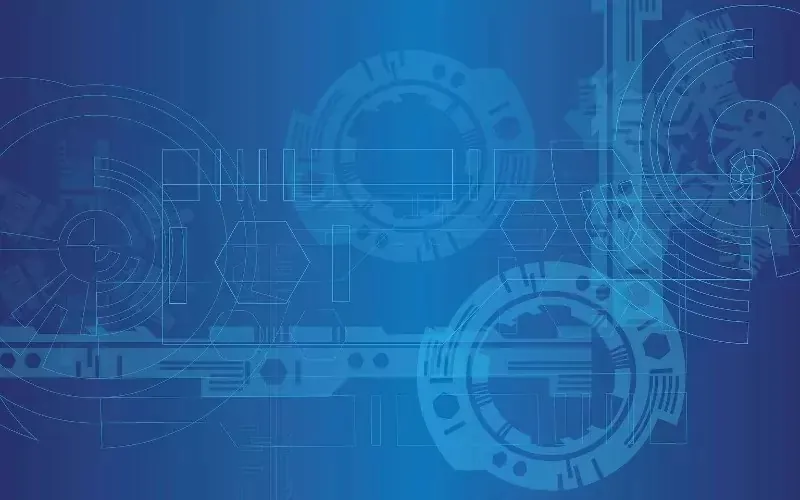Blockchain is heralding a new era in the secure handling of scientific research data. A platform like MaterialsZone is pivotal in reshaping how data is shared and protected globally.
Utilising cutting-edge blockchain technology, MaterialsZone offers a resolution to the challenges faced by academics in securing and sharing valuable research data. This transformation is set to foster collaboration and innovation in material sciences.
Revolutionising Scientific Research Storage
Utilising a blockchain ecosystem for the secure storage of academic research, the Israeli platform MaterialsZone recently attracted $1 million in investment to combat the issue of lost and stolen scientific data. This funding, provided by Sarona Ventures, is intended to expand the platform on a global scale. MaterialsZone facilitates the safe storage and trading of scientific research, which is crucial in the current publishing climate.
In today’s academic world, many researchers hesitate to share data due to fears of having their findings preempted by competitors. MaterialsZone addresses this problem by creating an open marketplace for scientific data. The platform encourages collaboration in the field of material sciences, rewarding laboratories and scientists who choose to share their work openly. It also uniquely allows the sharing of unsuccessful experiment data, potentially saving significant time and resources for researchers who might otherwise duplicate efforts.
The Role of Blockchain Technology
The implementation of blockchain technology is a cornerstone of MaterialsZone’s operations. It ensures that data transactions are conducted securely, preventing alterations while maintaining data ownership with the original creators. This decentralisation means no single entity holds control over the database, thus offering a fairer and more transparent system.
Dr Assaf Anderson, CEO of MaterialsZone, highlighted the constraints of traditional publishing, estimating that up to 95% of data remains unpublished due to various strains researchers encounter. He views materials science as the major driver of innovation, underlining the importance of unlocking vast amounts of data to speed up new discoveries and technological advancements.
Promoting Innovation and Collaboration
MaterialsZone’s strategy promotes innovation by encouraging cross-collaboration between different laboratories and researchers. By establishing incentives for data sharing, the platform opens exciting opportunities for advancements in materials science.
Sharing data on failed experiments can be revolutionary. Traditionally, unsuccessful results are rarely published, leading to repetitive trials. With MaterialsZone, these results become part of the research community’s collective knowledge, fostering a cooperative environment that is likely to accelerate progress.
Philippe Bouaziz, Sarona Ventures’ founder, emphasised their commitment to supporting technologies at the forefront of innovation. He expressed excitement about MaterialsZone’s potential to transform the way scientific data is shared and used, particularly through advanced technologies like blockchain and AI.
Global Expansion Plans
The recent collaboration with Sarona Ventures not only provides financial backing but also strategic support for MaterialsZone’s expansion goals. By scaling their platform globally, they aim to integrate more laboratories into their network, essentially creating a worldwide hub for materials science research.
This global outlook enhances the platform’s potential to contribute to the scientific community on a larger scale. With a vast network, the collaborative efforts can lead to groundbreaking discoveries, inspiring further technological evolution.
Such expansion is anticipated to bolster the MaterialsZone database, providing a robust and universally accessible resource for researchers around the globe. This could lead to considerable advancements in materials science and innovation.
Economic and Academic Implications
The economic implications of adopting a blockchain-backed system for research data are significant. By reducing duplication of efforts and fostering innovation, MaterialsZone aims to cut down costs associated with scientific research.
Academically, the platform’s structure could transform the way research is conducted. By encouraging the sharing of all data, published or not, MaterialsZone could make scientific exploration more efficient and less isolated.
The incentives offered by the platform not only propel researchers towards collaboration but also to new research methodologies. This can redefine the traditional landscape of scientific publications and foster a culture where open data sharing is the norm rather than the exception.
The Future of Blockchain in Scientific Research
MaterialsZone exemplifies the use of blockchain in research by showcasing its potential to safeguard intellectual property while promoting open access to data. As observed by industry experts, this integration might pave the way for similar innovations in other scientific fields.
The platform’s success could lead to increased adoption of blockchain across various research disciplines, making data more accessible and verifiable across borders.
In the coming years, as blockchain technology progresses, its application in the research sector could significantly impact how data is preserved, accessed, and utilised, fostering a new era of transparency and efficiency.
Key Takeaways
The integration of blockchain into scientific research, as demonstrated by MaterialsZone, has the potential to resolve longstanding issues of data security and accessibility. It opens new avenues for sharing and collaboration, ultimately contributing to more dynamic and effective scientific progress.
The integration of blockchain technology into scientific research by platforms such as MaterialsZone is transformative. It enhances data security and fosters a collaborative environment, crucial for innovation.
Such advancements not only propel scientific discovery forward but also establish a new standard in data sharing practices, encouraging a more open and efficient research landscape.

